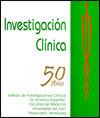直肠内超声在评估癌症新辅助放化疗后局部进展的侵袭分期中的价值。
IF 0.1
4区 医学
Q4 MEDICINE, RESEARCH & EXPERIMENTAL
引用次数: 0
摘要
尽管在新辅助放射化疗后,癌症T3和T4期可降至T1或T2,但直肠超声(ERUS)对低位癌症放射化疗后评估的准确性很少报道。我们的目的是研究ERUS在评估癌症局部进展的侵袭分期中的价值,以及影响其准确性的因素。2018年2月至2020年12月,共有114名患者接受了II期和III期低直肠癌癌症(局部T3/T4期)的新辅助放化疗。用ERUS评估放化疗前后局部病变的变化,并与病理T分期进行比较。评估ERUS检查的新辅助放化疗后重新分期的准确性,并使用单变量分析来确定影响准确性的因素。与治疗前相比,新辅助放化疗后,病变内血流分布显著下降(P<0.05),病变纵轴的最大长度和最大厚度减少(P<0.05)和uT分期降低(P<0.05)。与术后病理T分期相比,ERUS在T1、T2、T3和T4分期的准确率分别为11.11%、28.57%、27.27%和100%。单因素分析表明,ERUS复查时间、术后T分期和Wheeler直肠回归分期是影响ERUS复查准确性的因素。ERUS对T4再老化更为准确,在新辅助放化疗和低消退肿瘤后6周进行随访,对评估新辅助放射化疗对低直肠癌癌症的疗效具有很高的应用价值。本文章由计算机程序翻译,如有差异,请以英文原文为准。
Value of endorectal ultrasonography in the assessment of invasion staging of low rectal cancer with local progression after neoadjuvant radiochemotherapy.
Although stages T3 and T4 rectal cancer can be reduced to T1 or T2 after neoadjuvant radiochemotherapy, the accuracy of the en-dorectal ultrasonography (ERUS) for the post-radiochemotherapy evalua-tion of low rectal cancer has seldom been reported. We aimed to investigate the value of ERUS in the assessment of invasion staging in low rectal cancer with local progression, and the factors affecting its accuracy, after neoad-juvant radiochemotherapy. A total of 114 patients administered with neo-adjuvant radiochemotherapy for stages II and III low rectal cancer (local stage T3/T4) from February 2018 to December 2020 were enrolled in the study. The changes in local lesions were evaluated using ERUS before and after radiochemotherapy, and compared with the pathological T staging. The accuracy of post-neoadjuvant radiochemotherapy re-staging examined with ERUS was evaluated, and univariate analysis was used to identify the factors affecting the accuracy. After neoadjuvant radiochemotherapy, the blood flow distribution within the lesion significantly declined (P<0.05), the max length and max thickness of the longitudinal axis of the lesion were reduced (P<0.05), and the uT staging was decreased (P<0.05), when compared with lesions before the treatment. Compared with postoperative pathological T staging, the accuracies of ERUS in T1, T2, T3 and T4 stages were 11.11%, 28.57%, 27.27% and 100%, respectively. Univariate analysis indicated that review time of ERUS, post-operative T staging and Wheeler rectal regression stage were factors affecting the accuracy of ERUS re-stag-ing. ERUS is more accurate for T4 re-staging, follow-up reviewed six weeks after neoadjuvant radiochemotherapy and low regression tumors, with a high application value for the assessment of the efficacy of neoadjuvant radiochemotherapy for low rectal cancer.
求助全文
通过发布文献求助,成功后即可免费获取论文全文。
去求助
来源期刊

Investigacion clinica
MEDICINE, RESEARCH & EXPERIMENTAL-
CiteScore
0.20
自引率
50.00%
发文量
2
审稿时长
>12 weeks
期刊介绍:
Estudios humanos, animales y de laboratorio relacionados con la investigación clínica y asuntos conexos.
 求助内容:
求助内容: 应助结果提醒方式:
应助结果提醒方式:


